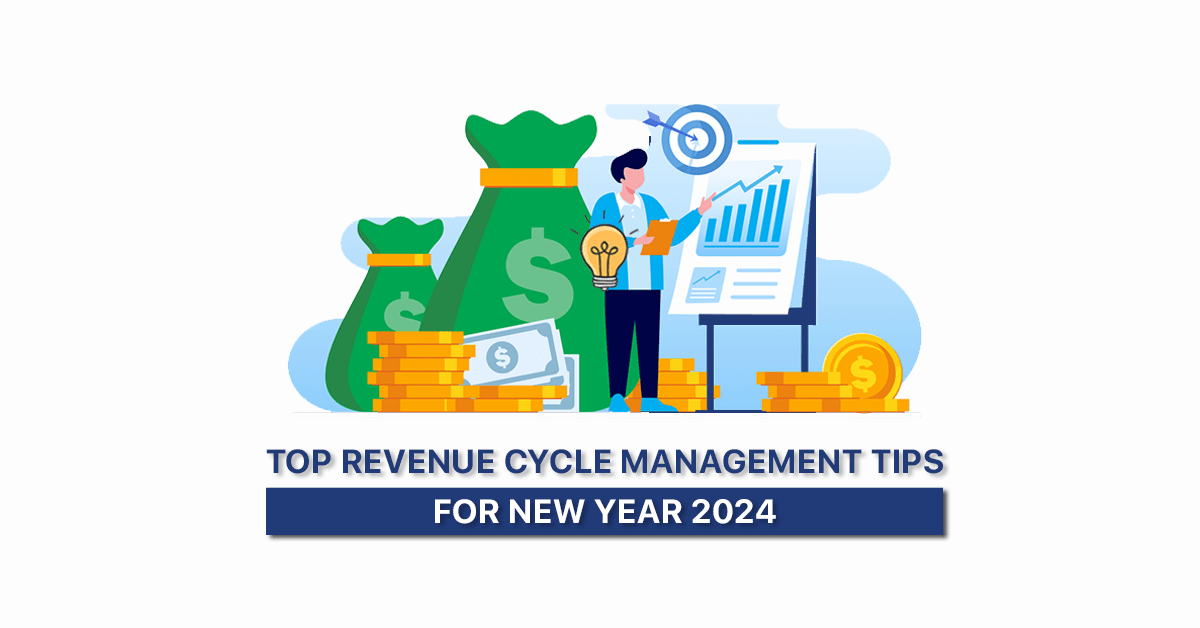As the healthcare industry continues to evolve, healthcare revenue cycle management (RCM) has become increasingly important. In order to ensure financial stability and success, healthcare providers must stay up-to-date with the latest revenue cycle management tips and best practices.
6 Tips for Healthcare Revenue Cycle Management 2024
1. Embrace Technology
Advancements in technology have revolutionized the healthcare industry, and revenue cycle management is no exception. By utilizing electronic health records (EHRs), revenue cycle management software, and other technological tools, healthcare providers can streamline their medical billing processes and improve overall efficiency. In addition, technology can help providers identify areas for improvement and optimize revenue cycle performance.
2. Prioritize Patient Experience
While revenue cycle management is focused on financial success, it is important not to lose sight of the patient experience. Patients who have positive experiences with billing and payment processes are more likely to pay their bills on time and return for future services. By prioritizing patient experience, healthcare providers can improve patient satisfaction and ultimately increase revenue.
3. Train Staff on RCM Best Practices
Effective revenue cycle management requires a team effort, and it is important to ensure that all staff members are trained on RCM best practices. This includes educating staff on billing processes, coding requirements, and other key aspects of revenue cycle management. By investing in staff training, healthcare providers can improve overall efficiency and reduce errors that can impact revenue.
4. Monitor Key Performance Indicators (KPIs)
In order to track revenue cycle performance, healthcare providers should monitor key performance indicators (KPIs). This includes metrics such as days in accounts receivable, denial rates, and collection rates. By regularly monitoring KPIs, providers can identify areas for improvement and make data-driven decisions to optimize revenue cycle performance.
5. Utilize Revenue Cycle Management Consulting Services
For healthcare providers who are struggling with revenue cycle management, consulting services can be a valuable resource. Revenue cycle management consulting services like Allzone Management Services Inc. can provide expertise and guidance on best practices, technology solutions, and other strategies for improving revenue cycle performance.
Effective healthcare revenue cycle management is crucial for financial success in the healthcare industry. By embracing technology, prioritizing patient experience, staying up-to-date with regulations, training staff on RCM best practices, monitoring KPIs, and utilizing consulting services when necessary, healthcare providers can optimize their revenue cycle performance and ensure long-term financial stability.
6. Optimize Denial Management
Denial management is a critical component of RCM. Implement strategies to reduce denials and improve your appeals process, such as:
-
- Root Cause Analysis: Conduct regular analysis to identify the root causes of denials and implement corrective actions.
- Timely Appeals: Establish a streamlined process for quickly addressing and appealing denied claims.
- Continuous Improvement: Regularly review and refine your denial management processes to adapt to changing payer requirements and regulations.
7. Prioritize Cybersecurity
With the increasing digitization of healthcare data, cybersecurity is more important than ever. Protecting patient data and ensuring compliance with regulations such as HIPAA is crucial. Steps to enhance cybersecurity include:
-
- Regular Audits: Conduct regular security audits to identify vulnerabilities and address them promptly.
- Employee Training: Train staff on cybersecurity best practices and how to recognize phishing attempts and other threats.
- Advanced Security Measures: Implement advanced security measures such as encryption, multi-factor authentication, and intrusion detection systems.
8. Stay Up-to-Date with Regulations
The healthcare industry is heavily regulated, and staying up-to-date with regulations is crucial for successful revenue cycle management. Providers must be aware of changes in billing codes, reimbursement rates, and other regulatory requirements that may impact their revenue cycle. Failure to comply with regulations can result in fines and other penalties that can negatively impact a provider’s financial stability.

